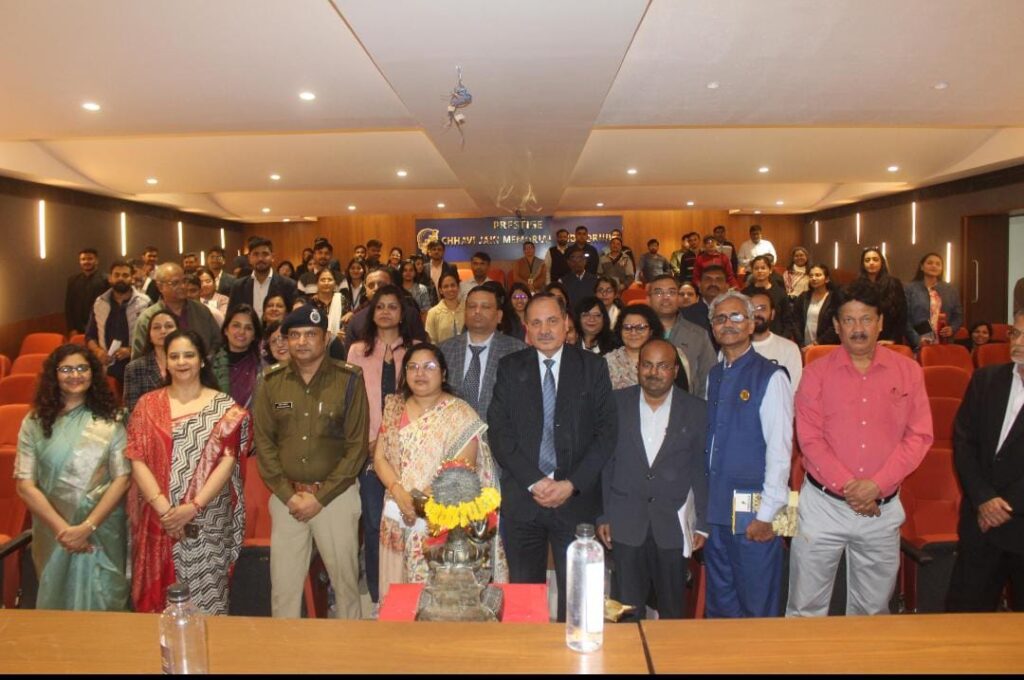India loses over ₹11,000 crore in cyber fraud epidemic
2 min read
PIMR leads fight against digital scams
Indore (Team Newsbuddy): As cyber criminals exploit technology to unprecedented levels, India faces a digital epidemic with over ₹11,000 crore lost to online scams in the first half of 2024 alone. Alarmed by the soaring figures and the growing threat of “digital arrest” frauds, the Women Empowerment Cell of the Prestige Institute of Management and Research (Bhumika) took proactive steps by organizing an awareness session to educate students and the public on staying safe in the digital world.
Addressing the packed session, Additional DCP (Crime), Indore, Rajesh Dandotiya, painted a grim picture of India’s cybercrime landscape. “Every five minutes, a cybercrime is reported in the country. Unfortunately, many victims, including highly educated professionals, hesitate to lodge complaints, fearing public shame. This lack of action only emboldens fraudsters, leaving hundreds of cases and crores of rupees unreported,” he said.
Dandotiya urged immediate reporting of incidents to help authorities freeze fraudulent accounts and recover funds. He also cautioned against common traps like responding to unknown calls or clicking suspicious links, while sharing practical safety tips to protect against digital frauds.
The session brought attention to the rise of AI-powered scams, which have shaken public trust and dealt severe financial blows. According to the Indian Cyber Crime Coordination Centre (I4C), Indians lose an average of ₹60 crore daily to cyber frauds, with ₹120.3 crore lost to “digital arrest” scams alone. Over 6,000 complaints are filed daily on the National Cyber Crime Reporting Portal, but experts believe many more crimes remain unreported.
Earlier, PIMR Group Director, Dr. S. S. Bhakar, lauded the Women Empowerment Cell for its initiative, calling it a crucial step in creating digital awareness among students and faculty. “Cyber frauds are not just financial crimes; they erode trust in technology and institutions. Sessions like these are vital for empowering individuals to navigate the digital age safely,” he said.







